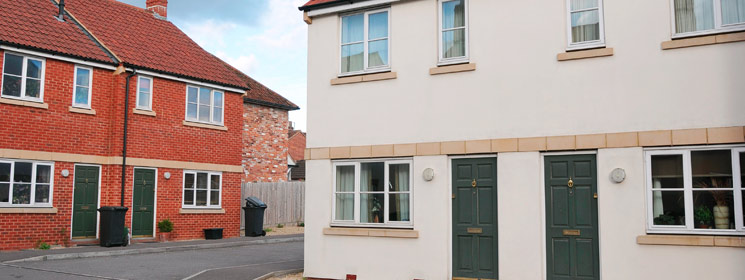
It is important to know what you’re buying when you buy anything but most purchases you make in life won’t be as large or important as buying a house. You need to make sure you know what issues you are taking on as part of the package. We have highlighted some of the DO’s and DON’Ts to ensure you don’t buy any unexpected headaches when you are buying a house.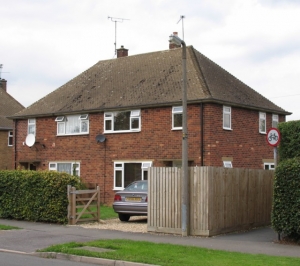
Before you even enter the property there are a number of clues that you should be looking for that can reveal a lot about the house you are considering.DO check the state of the road that leads to the property. Some side roads are not adopted by the council and it is down to the householders that use them to contribute towards their maintenance.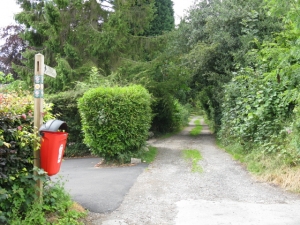 DO make sure you look at the roof of the house. Does it need essential repairs or even replacement? If you are buying a house with a view to developing it, spotting expensive repairs should be your cue to negotiate a lower price.DO check the state of the front and back garden, including the garage as a gauge to who has been living there. Is the garage full of junk? Does the garden look like Jurassic Park? You are buying a house; not a landscaping project!DON’T forget to check the neighbour’s garden. If it is full of household waste then this could suggest problems with vermin as well as neighbours who may be anti-social.
DO make sure you look at the roof of the house. Does it need essential repairs or even replacement? If you are buying a house with a view to developing it, spotting expensive repairs should be your cue to negotiate a lower price.DO check the state of the front and back garden, including the garage as a gauge to who has been living there. Is the garage full of junk? Does the garden look like Jurassic Park? You are buying a house; not a landscaping project!DON’T forget to check the neighbour’s garden. If it is full of household waste then this could suggest problems with vermin as well as neighbours who may be anti-social.
Always remember that sellers will want to show their properties in the best light possible and that may include taking steps to hide things they don’t want you to see.DO Check under rugs, especially in rooms that already have carpets fitted, as these could be hiding signs that there had been a problem – a stain from where water had dripped from the ceiling perhaps.DO look out for furniture that is oddly placed or looks to be set at a strange angle. Perhaps it is covering up a damp problem.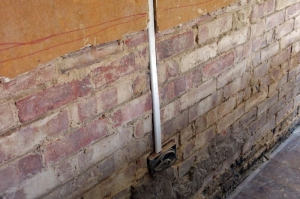 DON’T ignore your senses. Can you smell damp? If so, be vigilant in trying to identify where it is. Ask the seller straight out if they have any problems with damp. It is easy to hide a problem but a little more difficult for most people to tell a bare faced lie.
DON’T ignore your senses. Can you smell damp? If so, be vigilant in trying to identify where it is. Ask the seller straight out if they have any problems with damp. It is easy to hide a problem but a little more difficult for most people to tell a bare faced lie.
Many older houses may be structurally sound and there may be no easily detectable issues however they may have been wired decades ago. This is particularly important if you are buying the house as a buy-to-let for example. Modern day regulations mean that many older houses will need to be rewired.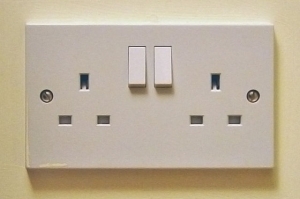 DO check light switches and sockets to ensure they are in working order. A good tip is to take a phone charger and use your phone as a tester.DON’T forget to check that any white goods or other equipment included in the sale are in working order. Ask to see dishwashers working for example.Good plumbing is often taken for granted but we rely on it for drinking water, for bathing and showering, for washing clothes and for our heating systems. Any issues can quickly become a major head ache, especially if such problems result in leaking pipes for example.
DO check light switches and sockets to ensure they are in working order. A good tip is to take a phone charger and use your phone as a tester.DON’T forget to check that any white goods or other equipment included in the sale are in working order. Ask to see dishwashers working for example.Good plumbing is often taken for granted but we rely on it for drinking water, for bathing and showering, for washing clothes and for our heating systems. Any issues can quickly become a major head ache, especially if such problems result in leaking pipes for example.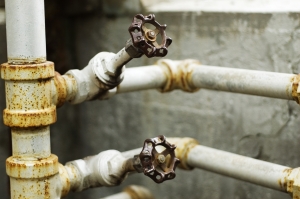 DO check under the sink for any signs of previous leaks.DO check that there is running water from the taps.DO check the radiators when the heating is on. Does the heat rise all the way to the top?DON’T ignore the boiler. Ask to see it if possible and ask lots of questions. When was it installed? Have there been any issues? Is it under guarantee? What type of boiler is it? The type of heating system being used can be a clue to its age.
DO check under the sink for any signs of previous leaks.DO check that there is running water from the taps.DO check the radiators when the heating is on. Does the heat rise all the way to the top?DON’T ignore the boiler. Ask to see it if possible and ask lots of questions. When was it installed? Have there been any issues? Is it under guarantee? What type of boiler is it? The type of heating system being used can be a clue to its age.
Many people ignore the roof space and the cellar. The cellar is important because it can reveal clues such as major cracks that suggest structural issues or show signs of flooding. The main fuse box may be in the cellar as well and this can be a dead give-away as to whether the house needs rewiring.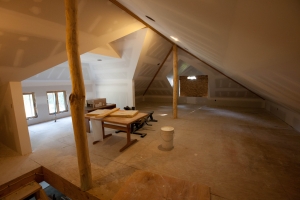 The roof space is worth checking as this may be where the boiler is housed and can be a cause of heat loss and energy inefficiencies if it is not lagged properly. Has it been converted into a room and if so, have building regulations been adhered to? If it is a back to back or terraced house, make sure there is a fire wall in place otherwise any insurance on the property could be invalid.
The roof space is worth checking as this may be where the boiler is housed and can be a cause of heat loss and energy inefficiencies if it is not lagged properly. Has it been converted into a room and if so, have building regulations been adhered to? If it is a back to back or terraced house, make sure there is a fire wall in place otherwise any insurance on the property could be invalid.
 First time buyers often show too much interest in the superficial aspects of the house, how it has been decorated, the general levels of cleanliness and tidiness of the current occupants etc. Always remember that what really counts is the structural soundness, the true value of the house and whether that value is set to rise…or fall, and a house that just needs a face lift with a lick of paint is much better than a show home that is hiding all sorts of problems that you will end up paying for!
First time buyers often show too much interest in the superficial aspects of the house, how it has been decorated, the general levels of cleanliness and tidiness of the current occupants etc. Always remember that what really counts is the structural soundness, the true value of the house and whether that value is set to rise…or fall, and a house that just needs a face lift with a lick of paint is much better than a show home that is hiding all sorts of problems that you will end up paying for!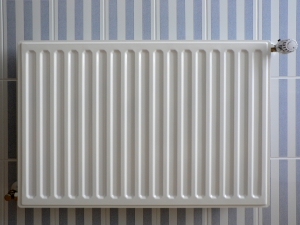 Keep your wits about you as you walk around the property. What counts mostly are often the things you can’t see such as the damp behind the wardrobe or the cause of the squeaky floor. Above all, remember that just because something is in working order today, doesn’t mean it isn’t going to break down six months after you’ve moved in.
Keep your wits about you as you walk around the property. What counts mostly are often the things you can’t see such as the damp behind the wardrobe or the cause of the squeaky floor. Above all, remember that just because something is in working order today, doesn’t mean it isn’t going to break down six months after you’ve moved in.
It is worth remembering that your mortgage lender will have a survey done on the house but this is likely to be pretty basic report and not very in-depth. Don’t be under any illusions about the survey that your bank commissions. This is really no more than a valuation to ensure that they are not lending you more than the house is worth. There is nothing to stop you commissioning your own survey to be on the safe side and we would recommend that, especially if you have any doubts at all at the viewing stage. If you decide to carry out your own survey be sure to obtain a suitable RICS Report that looks for all or nearly all possible defects.
If you are buying a house you will need a reliable and thorough conveyancer. A decent conveyancer should be concerned with much more than ticking a few boxes and drawing up an agreement between you and the seller. Here at Hallam Solicitors, we ensure that no stone is left unturned in giving you the best advice possible at every stage in the process, putting your interests first.If you are thinking of buying or selling a house, give us a shout for a friendly chat.